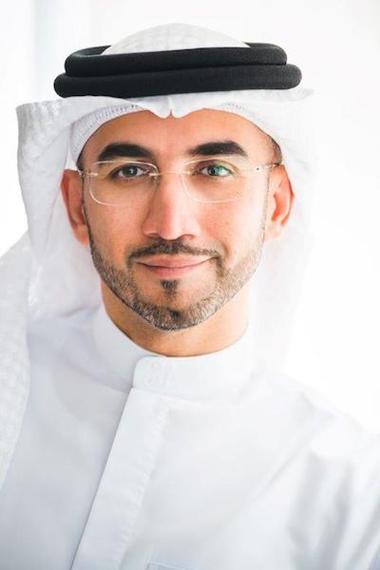 From our first meeting, I knew Jamal Al Sharif possessed the stuff great leaders are made of. I was a mere listener then, sitting on the sidelines of an encounter between the Dubai Film and TV Commission (DFTC) Chairman and a film industry figure who was trying to convince him to do things her way. I cheered silently, as Al Sharif at once supported firmly his own choices -- and those of the Commission -- and listened to her suggestions, told in that typical "I know better than you" tone that so-called Hollywood experts tend to use to address relative "newcomers" to the game. Because in terms of timing, and timing only, Dubai is indeed the last player to join the world game of cinema and outsiders tend to make the mistake of thinking that young means naive.
From our first meeting, I knew Jamal Al Sharif possessed the stuff great leaders are made of. I was a mere listener then, sitting on the sidelines of an encounter between the Dubai Film and TV Commission (DFTC) Chairman and a film industry figure who was trying to convince him to do things her way. I cheered silently, as Al Sharif at once supported firmly his own choices -- and those of the Commission -- and listened to her suggestions, told in that typical "I know better than you" tone that so-called Hollywood experts tend to use to address relative "newcomers" to the game. Because in terms of timing, and timing only, Dubai is indeed the last player to join the world game of cinema and outsiders tend to make the mistake of thinking that young means naive. Not in the case of Dubai, because while sitting on the sidelines, the powers that be in the emirate have had a chance to observe everyone else's mistakes, so as not to repeat them.
Fast forward a couple of years to present time and Al Sharif has, of course, proven me right. He's helped to create a commission that secured enviable shoots for both Star Trek Beyond and the latest Jackie Chan project. And we're just talking about the last two months alone. There are countless serials and dramas filming in Dubai Studio City at all times and a heap of other projects being considered by the Commission these days, so many they have had to turn down quite a few because the location is just too busy.
Then there is the respect for his culture that Al Sharif exudes but also encourages. Films are chosen by the DFTC with certain criteria in mind and you'll have to read all about the Sex and the City 2 capers below, told in Al Sharif's own, honest and easygoing words, to find out exactly what I mean. Dubai is indeed a city of opportunity, wonder and endless possibilities. Everything is possible and all is doable in cinematic terms, but never forget to respect the region. And in these days of geopolitical conflicts and violence generated by skewed versions of religion and belonging, it's refreshing to find a balance between freedom and chaos. To me, Dubai feels like an oasis of middle ground in this world of antipodean opinions.
I caught up with Jamal Al Sharif at last year's Dubai International Film Festival, and as the festival gets ready to kick off its 12th edition in a couple of days, once again in partnership with DFTC and Dubai Studio City, it seemed like the perfect time to celebrate its Chairman, who is also the Managing Director of DSC. These three entities, each with a very precise and well-thought-out mandate, combine to represent at once the cinematic infrastructure, the resources and the glamour of the film industry in the UAE. And Al Sharif, with that hint of an American accent, his warm demeanor and easy sense of humor, epitomizes the best the region has to offer.
From where I stand, I find you've always been clear about what you wanted to achieve with the Commission, though I met you through someone who wanted to tell you how to do things. I think that's the mistake most foreigners make who come here, they want to do things their way. How has it been for you since you've started at the Commission and what have you achieved since you began?
Jamal Al Sharif: Very good question, diplomatic and political at the same time. We go a bit back, when we talk about the Film Commission in this part of the region, and when I say this part of the region I mean the Gulf. It's very much new, and media was always a tabu in this part of the world. When you would ask a woman to go in front of the camera, in the 60s or 70s there were no women! If you look at most of the TV soaps, men. If you look back at TV news reporters, if they were women they were all from Egypt and Lebanon, or Palestine. Look at the difference today. You look at Dubai's TV, flip on every channel I guarantee you won't see anyone but local faces. So the shift has begun. To move to the next level and the next level is on the horizon, not too far. It may have taken Hollywood 100 ye